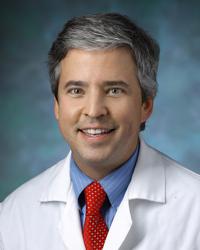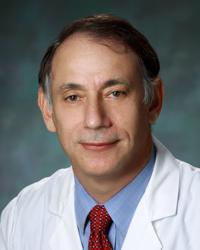Research Lab Results
-
Caleb Alexander Lab
Research in the Caleb Alexander Lab examines prescription drug use. This includes studies of population-based patterns and determinants of pharmaceutical use, clinical decision-making about prescription drugs, and the effect of changes in regulatory and payment policies on pharmaceutical utilization. We have special expertise in conducting survey-based studies and analyzing secondary data sources, including administrative claims, the Medical Expenditure Panel Survey and the National Ambulatory Medical Care Survey. -
Cammarato Lab
The Cammarato Lab is located in the Division of Cardiology in the Department of Medicine at the Johns Hopkins University School of Medicine. We are interested in basic mechanisms of striated muscle biology. We employ an array of imaging techniques to study “structural physiology” of cardiac and skeletal muscle. Drosophila melanogaster, the fruit fly, expresses both forms of striated muscle and benefits greatly from powerful genetic tools. We investigate conserved myopathic (muscle disease) processes and perform hierarchical and integrative analysis of muscle function from the level of single molecules and macromolecular complexes through the level of the tissue itself. Anthony Ross Cammarato, MD, is an assistant professor of medicine in the Cardiology Department. He studies the identification and manipulation of age- and mutation-dependent modifiers of cardiac function, hierarchical modeling and imaging of contractile machinery, integrative analysis of striated muscle performance and myopathic processes. -
Cardiac Surgery Research Lab
Founded in 1942 by surgeon Alfred Blalock and surgical technician Vivien Thomas, the Cardiac Surgery Research Lab at The Johns Hopkins Hospital serves not only to spearhead discovery and innovation in cardiothoracic surgery, but also to train future leaders in the field. Active areas of investigation include the development of novel, nanoparticle-based therapeutics to mitigate acute lung injury, avoid neurological injury during cardiac surgery, and improve organ preservation during heart and lung transplantation. The lab is also active in a variety of clinical research projects aimed at improving outcomes for our patients. Equally important, the lab plays a critical role in training residents for impactful careers in academic cardiothoracic surgery. Medical students, residents, and fellows receive hands-on simulation experiences to hone surgical skills outside of the operating room. The lab also serves as a training ground to develop research and investigation skills as trainees learn methods of advanced statistical analysis and academic writing. Special programs for undergraduates and medical students help develop their passion for cardiac surgery and surgical research, giving unique opportunities to young talent. -
Cardiology Bioengineering Laboratory
The Cardiology Bioengineering Laboratory, located in the Johns Hopkins Hospital, focuses on the applications of advanced imaging techniques for arrhythmia management. The primary limitation of current fluoroscopy-guided techniques for ablation of cardiac arrhythmia is the inability to visualize soft tissues and 3-dimensional anatomic relationships. Implementation of alternative advanced modalities has the potential to improve complex ablation procedures by guiding catheter placement, visualizing abnormal scar tissue, reducing procedural time devoted to mapping, and eliminating patient and operator exposure to radiation. Active projects include • Physiological differences between isolated hearts in ventricular fibrillation and pulseless electrical activity • Successful ablation sites in ischemic ventricular tachycardia in a porcine model and the correlation to magnetic resonance imaging (MRI) • MRI-guided radiofrequency ablation of canine atrial fibrillation, and diagnosis and intervention for arrhythmias • Physiological and metabolic effects of interruptions in chest compressions during cardiopulmonary resuscitation Henry Halperin, MD, is co-director of the Johns Hopkins Imaging Institute of Excellence and a professor of medicine, radiology and biomedical engineering. Menekhem M. Zviman, PhD is the laboratory manager. -
Cardio-Obstetrics Research
Under the division of Maternal-Fetal Medicine, our Cardio-Obstetric research efforts seek to advance the field of gynecology through medical care and innovation. With a focus on the effect of heart conditions on pregnancy and the ways in which pregnancy can put stress on your heart and circulatory system, our goal in this multi-disciplinary research is that our findings may lead to the development of new treatments or preventative therapies for patients and their babies to better manage a heart condition during pregnancy. -
Cardiovascular Analytical Intelligence Initiative (CV-Ai2)
Among the hundreds of predictive models developed for cardiovascular disease, less than one-tenth of 1% actually end up routinely used in clinical practice. CV-Ai2 uses data from clinical practice and analytic intelligence to solve clinical problems and create solutions that can be applied in real-world patient care. -
Cardiovascular Stem Cell Program
The research program aims to advance cardiovascular biology and medicine by focusing on pluripotent stem cell-based modeling and therapy and by nurturing future leaders in regenerative medicine. -
Caren L. Freel Meyers Laboratory
The long-term goal of the Caren L. Freel Meyers Laboratory is to develop novel approaches to kill human pathogens, including bacterial pathogens and malaria parasites, with the ultimate objective of developing potential therapeutic agents. Toward this goal, we are pursuing studies of bacterial isoprenoid biosynthetic enzymes comprising the methylerythritol phosphate (MEP) pathway essential in many human pathogens. Studies focus on understanding mechanism and regulation in the pathway toward the development of selective inhibitors of isoprenoid biosynthesis. Our strategies for creating new anti-infective agents involve interdisciplinary research in the continuum of organic, biological and medicinal chemistry. Molecular biology, protein expression and biochemistry, and synthetic chemistry are key tools for our research.
-
Carey Research Group
John Carey’s Research Group conducts research regarding diseases of the inner ear that affect both balance and hearing mechanisms. Key interests include superior semicircular canal dehiscence syndrome (SCDS), the normal vestibular reflexes and how they change with age, novel intratympanic treatments (i.e., middle ear injections) for conditions like Menière’s disease and sudden hearing loss, and the mechanisms of vestibular migraine. With Lloyd Minor, Dr. Carey helped develop the operation to repair the superior canal in patients with SCDS using image-guided surgery. Dr. Carey has been funded by the National Institutes of Health – National Institute on Deafness and Other Communication Disorders to study inner ear balance function in Menière’s disease and steroid treatment of sudden hearing loss.
-
Carlo Colantuoni Laboratory
Dr. Colantuoni and his colleagues explore human brain development and molecular mechanisms that give rise to risk for complex brain disease. His team uses genomic technologies to examine human brain tissue as well as stem models and vast public data resources.






